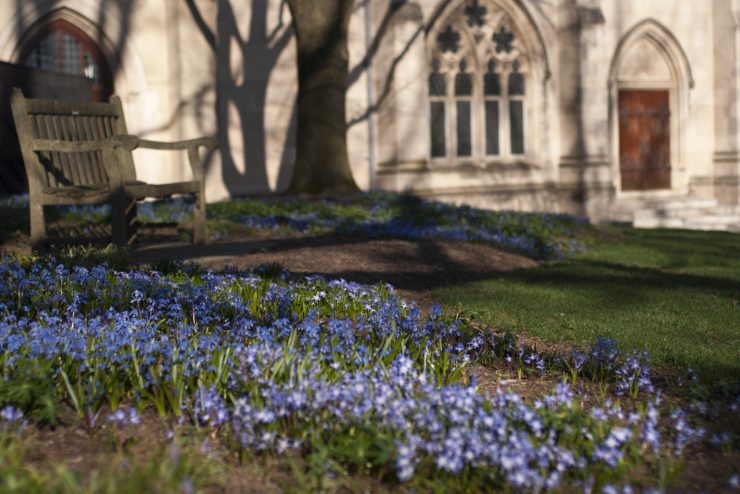A love so basic yet so elusive

Mark 12:18-34
Some Sadducees, who say there is no resurrection, came to him and asked him a question, saying, “Teacher, Moses wrote for us that if a man’s brother dies, leaving a wife but no child, the man shall marry the widow and raise up children for his brother. There were seven brothers; the first married and, when he died, left no children; and the second married her and died, leaving no children; and the third likewise; none of the seven left children. Last of all the woman herself died. In the resurrection whose wife will she be? For the seven had married her.” Jesus said to them, “Is not this the reason you are wrong, that you know neither the scriptures nor the power of God? For when they rise from the dead, they neither marry nor are given in marriage, but are like angels in heaven. And as for the dead being raised, have you not read in the book of Moses, in the story about the bush, how God said to him, ‘I am the God of Abraham, the God of Isaac, and the God of Jacob’? He is God not of the dead, but of the living; you are quite wrong.” One of the scribes came near and heard them disputing with one another, and seeing that he answered them well, he asked him, “Which commandment is the first of all?” Jesus answered, “The first is, ‘Hear, O Israel: the Lord our God, the Lord is one; you shall love the Lord your God with all your heart, and with all your soul, and with all your mind, and with all your strength.’ The second is this, ‘You shall love your neighbor as yourself.’ There is no other commandment greater than these.” Then the scribe said to him, “You are right, Teacher; you have truly said that ‘he is one, and besides him there is no other’; and ‘to love him with all the heart, and with all the understanding, and with all the strength,’ and ‘to love one’s neighbor as oneself,’– this is much more important than all whole burnt offerings and sacrifices.” When Jesus saw that he answered wisely, he said to him, “You are not far from the kingdom of God.” After that no one dared to ask him any question.
Jesus tells us that love of God and love of neighbor form the apex of the Torah and the prophetic writings. For those of you who love our Rite One liturgy like me, you recognize in his language the Great Commandment from our Holy Eucharist (BCP, p. 324). It is a summation of what we read in Mark and Matthew, who adds: “On these two commandments hang all the Law and the Prophets.” (22:40).
I especially like that curious verb, “hang.” It enables me to picture the theology in my mind as a giant and immutable Sequoia whose trunk, connecting earth to ether, is made of love of God and love of neighbor, and whose strength nourishes the branches of Hebrew Scriptures. The Talmud offers us another way to visualize this theology in its famous account of a gentile who wants to convert to Judaism. He will accept Judaism only if a rabbi can teach him the entire Torah while standing on one foot. First, this gentile goes to Shammai who, insulted by this ridiculous request, throws him out of the house. The man then approaches Hillel. The Sage accepts the challenge and says, “What is hateful to you, do not do to your neighbor. That is the whole Torah; the rest is commentary—go and study it!” The parallels are not exact, but I think you get my point. This love is so basic but so elusive.
Friends, we’re almost to Holy Week. Can you claim this Lent that you’ve done all in your power to love God and your neighbor? I believe that if we can commit our lives to this mission, the rest is, indeed, all commentary.
Faithfully,
Dana+
O Holy Spirit, giver of light and life, impart to us thoughts higher than our own thoughts, and prayers better than our own prayers, and powers beyond our own powers, that we may spend and be spent in the ways of love and goodness after the perfect image of our Lord Jesus Christ. (George Wallace Briggs, 2000 Years of Prayer, p. 435).